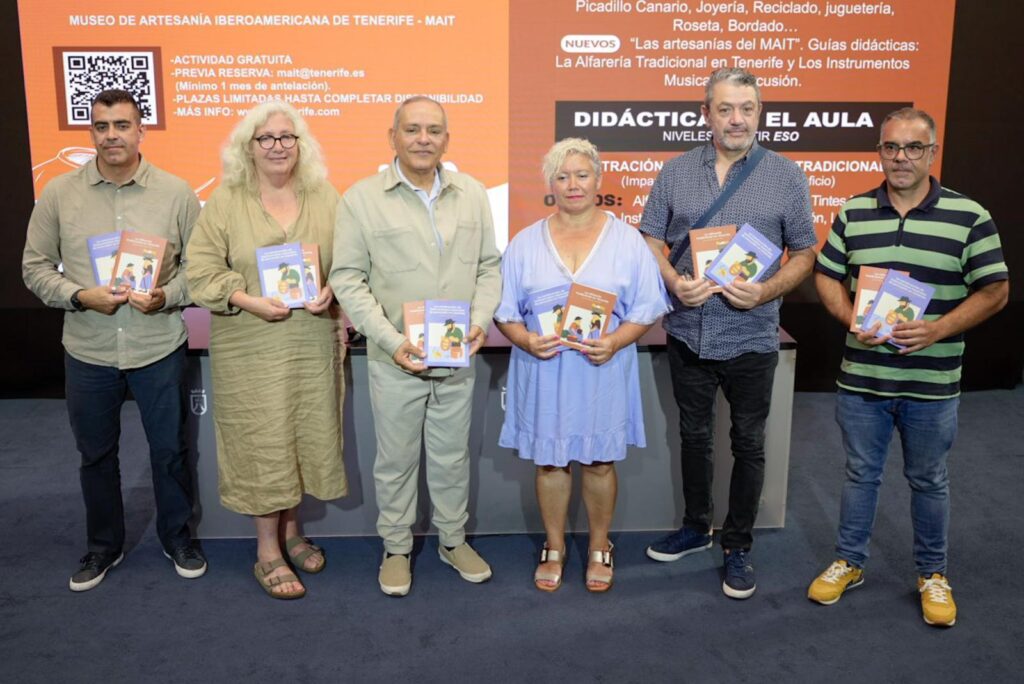The slightly more than one million Spaniards residing abroad, 162,100 of them Canarianswill be able start voting this Saturday ahead of Canary Islands Autonomous Elections 2023 from next May 28 in the units designated for this in the countries in which they reside.
These will be the first elections since 2011 in which Spaniards living abroad have not had to “beg” for their vote, by virtue of the reform of the Electoral Regime approved last September, but instead have received at their homes all the necessary information to be able to exercise this rightwhich is also available for download on the Internet.
In total, according to Census of Absent Resident Voters (CERA), as of February 1, when the count was closed, there are 1,056,057 Spaniards registered to vote in these elections around the world, although most of them are in European and Latin American countries.
Thus, the country with the most Spanish voters is Argentina, with almost 118,000, followed by France, with about 106,000. Behind are countries such as USAwith more than 93,500; Cubawith just over 90,300; Mexicowith almost 84,200; Venezuelawith more than 74,500; United Kingdom, with more than 68,500; either Germanywith almost 62,000.
The eventual weight of these voters in the result varies depending on the autonomous communities. The Community of Madrid it is the one that has the most voters outside of Spain, with almost 372,500. They follow him, but from afar, Canary Islands, with 162,100; the Valencian Community, with more than 125,700; and Asturiaswith 123,200.
Requirements to vote
All these Spaniards, if in addition to being registered in the CERA they are also registered in the Consular Registration Registry of the country in which they reside, have initially received in recent weeks at their homes information on how to exercise their right now that the vote is no longer requested and later the ballots for the elections in which they vote.
Besides, These ballots can be downloaded directly from the Internet both by the voter himself at home or when he goes to vote in the centers authorized for it.essentially the consulates, where it is planned to have both the physical ballots and the envelopes as well as the option of downloading and printing them.
In the latter case, the complete game will be delivered to guarantee the secrecy of the vote. “The possibility of only printing the ballot paper chosen by the voter will only be practicable when it is the voter himself who does it and in a remote place,” points out the Central Electoral Board (JEC) in his instruction of March 30 on voting abroad.
The face-to-face voting will take place between May 20 and 25. According to the instruction given by the Minister of Foreign Affairs, José Manuel Albares, voting will take place in career Consular Offices (General Consulates, Consulates and Consular Sections of Diplomatic Missions), although in some countries other state-owned dependencies have been chosen, such as the headquarters of the Instituto Cervantes, due to the specific needs of the locations to guarantee the proper development of the appointment with the polls.
In these “electoral colleges” abroad, all a series of requirements to guarantee the confidentiality of the vote, which includes, in addition to the aforementioned computer resources, the installation of voting booths as well as the relevant voting envelopes and other documentation. For this, Foreign Affairs recently acquired 205 voting booths that were sent to different countries.
Voting procedure
In reality, what voters abroad will do is deposit an envelope addressed to the competent electoral board in the elections in which they wish to participate in the ballot boxes set up for this purpose, in which the envelope with the ballot paper will be included. of your choice. Said envelope must be sealed by a consular official and signed, after showing and delivering one of the CERA registration certificates that voters will receive at home..
As is the case on electoral day in Spain, during the five days that face-to-face voting lasts, at the time set according to the cases, representatives of the electoral formations may be present, who may also inspect the offices.
At the end of each day, the ballot boxes must be sealed and sealed, stating on the seal the signature of the consular officer and the representatives of accredited formations that so wish. Both the sealing process and the opening process to continue on successive days or the final count will be public, according to the JEC.
Voters registered with CERA also have the possibility to vote by mail. For it they had to request it before May 18 and they have to send their envelope, if possible by certified mail, to the Consular Office in which they are registered until May 23.
envelope count
On May 25, once the voting period is over, the polls will be opened and to the count of the voters’ envelopes, to which those arrived by mail will be added, proceeding to issue a consular certificate that will be sent to the JEC.
All envelopes must be sent by diplomatic bag immediately to the office that will be set up for this purpose in the Ministry of Foreign Affairs from where, then, they will be sent to the corresponding electoral boards in charge of their scrutiny.
On the day of the general scrutiny, in the competent electoral board A polling station will be set up in charge of inserting the voting envelopes into the ballot box after having verified the registration in the CERA by means of the certificate that accompanies them. Once these votes are counted, will be incorporated into the result of the general scrutiny.
















